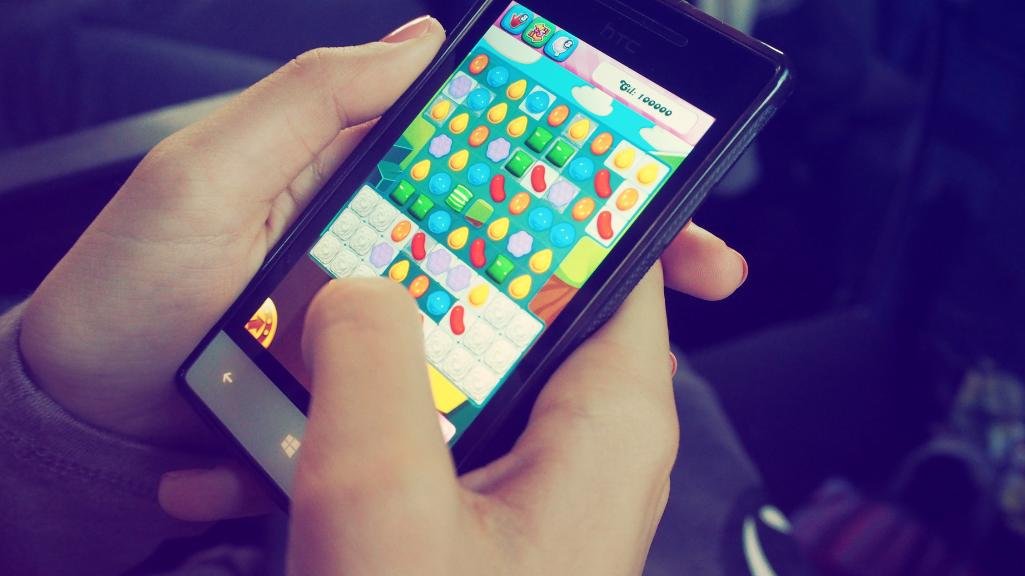Candy Crush: The Addictive Sweet Puzzle Game that Swept the World
Swati Mandana
. 2 min read
Candy Crush, developed by King, a leading mobile gaming developers, and released in April 2012, is a wildly popular match-three puzzle game that has taken the gaming world by storm. With its addictive gameplay, colorful graphics, and delightful confectionery theme, Candy Crush has captivated millions of players worldwide. In this article, we will delve into the mechanics, success factors, and impact of this sweet sensation in the realm of casual gaming.

Gameplay and Mechanics of Gaming
Candy Crush presents players with a grid filled with various colored candies. The objective is to match three or more candies of the same color in a row or column by swapping adjacent candies. Each level comes with specific goals, such as reaching a target score, clearing jelly-coated candies, or bringing down ingredients to the bottom of the grid.
With a limited number of moves or time constraints, players must strategize their moves to accomplish the objectives efficiently. The game becomes progressively challenging as players advance through levels, introducing new obstacles, boosters, and power-ups to keep players engaged and entertained.
Social Integration
Candy Crush's success can be attributed, in part, to its seamless integration with social media platforms. Players can connect the game to their Facebook accounts, enabling them to see their friends' progress on the game's map, send lives and gifts, and compete with friends on various leaderboards. This social aspect enhances the gaming experience, encouraging healthy competition and fostering a sense of community among players.
Freemium Model
Candy Crush follows a freemium model, making the game accessible to anyone with a smartphone or internet connection. While the game is free to download and play, it offers in-app purchases for power-ups, extra lives, and other bonuses that can aid players in overcoming difficult levels. The freemium model has proven to be highly lucrative, with Candy Crush consistently ranking among the top-grossing mobile games.
Cross-Platform Availability
Candy Crush's availability across multiple platforms has contributed significantly to its widespread popularity. Initially launched on Facebook, the game quickly expanded to other platforms, including iOS, Android, Windows Phone, and even web browsers. This cross-platform accessibility ensured that players could enjoy the game on their preferred devices, further boosting its user base.
Cultural Impact
Beyond its gaming achievements, Candy Crush has made a notable impact on popular culture. The game's vibrant aesthetics, catchy jingles, and easy-to-learn gameplay have turned it into a household name. It has been referenced in television shows, movies, and even in conversations, becoming a cultural phenomenon.
Furthermore, the success of Candy Crush has influenced the mobile gaming industry significantly. Many developers have attempted to replicate its gameplay and social integration, leading to the emergence of numerous match-three puzzle games. However, few have managed to replicate Candy Crush's level of success.
Conclusion
Candy Crush has undoubtedly earned its reputation as one of the most iconic casual games of all time. Its addicting gameplay, social integration, and cross-platform accessibility have garnered a massive and dedicated fan base. With its colorful candies and engaging challenges, the game continues to bring joy and entertainment to millions around the world. As we move forward into the future of gaming, Candy Crush's influence and legacy in the world of casual gaming are sure to endure.
More Stories from
The Evolution of Gaming: From Arcade Classics to Virtual Reality Experiences
This article explores the technological advancements, cultural impact, and changing trends that have shaped gaming into the global phenomenon it is today.
The Rise of E-Sports: How Online Gaming Transformed into a Global Phenomenon
In this article, we will explore the meteoric rise of e-sports, uncovering the factors that contributed to its popularity, the growth of its competitive scene, and the impact it has on the gaming industry and beyond.
The Resurgence of Board Games: Analyzing the Popularity in the Digital Age
Discover the surprising resurgence of board games in the digital age. This article explores the reasons behind their renewed popularity, from fostering genuine social interactions to providing tactile gameplay experiences.
Battlegrounds Mobile India (BGMI): Redefining Mobile Gaming in India
Battlegrounds Mobile India (BGMI) has taken the Indian gaming community by storm, revolutionizing the mobile gaming landscape.
Mastering the Art of Game Mastering: Strategies for Tabletop Role-Playing Games
Master the Art of Winning: Top-Secret Strategies for Your Favorite Games.








.png?width=40&aspect_ratio=1:1)
.png?width=40&aspect_ratio=1:1)
